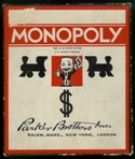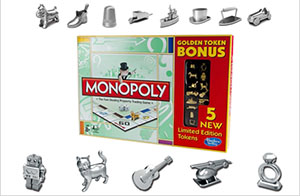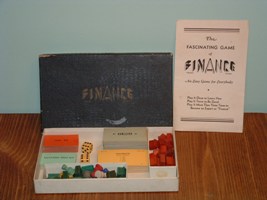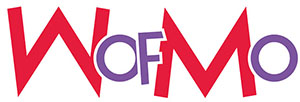Comprehensive History


The history of Monopoly begins long before Charles Darrow and Parker Brothers. To find the true beginnings we must travel back to 1904 and meet a woman named Elizabeth Magie (pronounced McGee). It was in this year that Lizzie was granted a patent for a board game called The Landlord’s Game. Lizzie was a Georgist and advocated his single tax theory.
The Landlord's Game was designed as a learning tool to teach this theory. This game was published in 1906 by the Economic Game Company with less than stellar success. The game did however gain a cult following in the Northeast and Midwest through the teens and twenties. Most of these games were hand made and were amended as the maker saw fit. Elizabeth Magie-Phillips (now married) obtained a new patent on an updated Landlord's Game in 1924.

Key to this story are four people; Dan Layman, Ruth Hoskins, Jesse Raiford, and Charles Todd. Layman learned The Landlord’s Game/Monopoly while in school and decided to publish it. He was told by his lawyers that the name Monopoly was in the public domain and therefore could not be trademarked, so he decided to publish the game under the name Finance. Electronic Laboratories and then Knapp Electric started publishing Finance in 1932 in Indiana(by 1935 Finance was outselling Monopoly 10 to 1).
Now, Ruth Hoskins was taught the game by Dan Layman and took it with her to Atlantic City. Here she and some friends played the game, changing the names of the properties to local, Atlantic City, street names (some of the spaces were rearranged and some property values were changed). Jesse Raiford was in this circle of friends. Raiford taught the game to Charles Todd who took it home with him to Germantown, PA.
In 1933 Charles Darrow learned the game of Monopoly from Charles Todd, a friend of Darrow’s wife. Darrow fell in love with the game and began selling handmade games to his friends. Soon, demand increased so much Darrow had to enlist the help of a printer to get sets made more quickly. Two all-inclusive white editions were produced in 1934 and a small black box edition with a separate board was produced in 1935. Darrow tried to sell the game to Parker Brothers and Milton Bradley in 1934, but neither firm was interested. In 1935 Monopoly again came to attention of Parker Brothers and at this time they decided to purchase and produce the game. (For a much more detailed account of the early history read Monopoly: The World’s Most Famous Game & How It Got That Way By Philip E. Orbanes.
Parker Brothers wanted a "monopoly" on Monopoly so they began trying to squash the competition. George Parker went to visit Lizzie Magie-Phillips to try to acquire her 1924 Landlord's Game patent. The two knew each as Parker Brothers had published some of her games in the past and she considered George Parker the "King of Games". The negotiation over the purchase was an easy one, Parker Brothers would pay Mrs. Magie-Phillips $500 and agree to publish a few more of her games including The Landlords Game (this was done in 1939 again with very little success). Patent number 1,509,312 now belonged to Parker Brothers.
Knapp (Electronics Laboratories) was another story. Already outselling Monopoly and beginning to market the game on a classic level they weren't convinced as easily. It took $10,000 of Parker Brothers Money (a huge amount in depression torn 1935) to convince Knapp to sell. Parker Brothers then changed Finance completely and, hiding behind a dummy company (The Finance Game Company), filled Knapp's outstanding orders. In 1936 the board and rules were again changed slightly and Finance became a Parker Brothers game.
Parker Brothers wasn't about to put all its eggs in one basket though. They had Darrow file for a patent, but knowing the true history of Monopoly they decided to produce their own version of the game. Fortune was the result of this work. As few as 5,000 of these games were made in 1935 before patent 2,026,082 was granted giving Parker Brothers proprietary rights to Monopoly. The name Fortune was then added to Finance which became Finance and Fortune until Parker Brothers used the name Fortune for another game in 1958 (see the Finance page for more information).
My goal with this part of the site is to help document and date all the editions of Monopoly starting with the United States side. Other sites claim the history of Monopoly can be found anywhere. While many have tried, the true history and chronology of the Darrow and Parker Brothers games is on this site. This has been achieved through countless hours of research and the invaluable help of others. New discoveries are made daily. A few I would like to thank for their help, either directly or indirectly, are: Dan Fernandez, Phil Orbanes, Chris Williamson, David Sadowski, Brian Boles, Paul Edgecomb, and Cliff Bolling, Without the help of these individuals much of this information would not have been obtained.
Many of the photos on History side of World of Monopoly are courtesy of Dan Fernandez (www.sundown-farm-and-ranch.com) and are used with his kind permission. Other photos are courtesy Clifford Bolling (also used with permission), various ebay auctions, and, wherever possible, from my own collection.
While I've made every effort to insure the accuracy of this information, I'm sure there are errors and omissions. If you see any corrections or additions that are needed, please contact me.
Welcome to World of Monopoly.
Here you can find lots of information about collecting and the many different official versions.
Though there are various Monopoly related items to collect, this website concentrates on the boards only.
This website does not sell any versions.
Total Official Editions Made
Total Official Editions On Here
Get In Touch
worldofmonopoly@gmail.com
Copyright © World of Monopoly 2003 - 2024
MONOPOLY, Waddington's, Parker Bros., Tonka and Hasbro and are Registered Trade Marks with Hasbro, 1935 2024, HASBRO, PARKER BROTHERS, Tonka, Waddington's, the MONOPOLY name and logo, the distinctive design of the game board, the four corner squares, the MR. MONOPOLY name and character, as well as each of the distinctive elements of the board and playing pieces are trademarks of Hasbro for its property trading game and game equipment. © 1935, 2024 Hasbro. The Winning Moves logo is the registered trademark of Winning Moves and the USAopoly logo is the registered trademark of USAopoly. Groep 24 Logo is the registered trademark of Groep 24. Identity Games Logo is the registered trademark of Identity Games. All Rights Reserved. Used with Permission.
All photos and information are copyright to the original owner or this website and must not be copied or used without permission via the website.
© World of Monopoly. All Rights Reserved.
